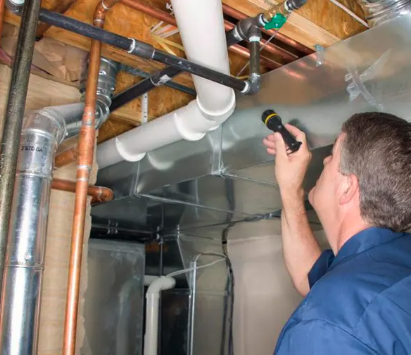How to understand your building report
When you're on the exciting journey of buying a new home, there are a couple of important steps to take beyond agreeing on the price. One of these steps is looking at the "builder's report." Think of this report as a detailed check-up for the house, carried out by a qualified inspector. They go through the property meticulously, looking for any signs of past or present damage and areas where materials might not be up to the best standards. This can happen before or after you've agreed on the price with the seller.
Getting a building inspection is like having someone assess the possible risks associated with the property you're interested in. It helps you figure out what maintenance tasks you might need to take care of in the future if you decide to buy the place. However, there's a thing you should keep in mind—don't expect the report to be all positive. Even brand-new houses can have minor issues, and older ones might have a longer list of things that need attention. Here are five friendly steps to help you go through your builder's report: Prepare Yourself: Remember, the building inspector's job is to find anything that could be less than perfect with the property. They're not there to tell you how great the house is. So, keep in mind that you might not get the reassurance you're hoping for from the report. It's a bit like taking a deep breath before looking at the results. Get Some Perspective: Almost every builder's report will point out areas that could be better and might require some spending to fix. Building standards have improved over time, so comparing an older house to a new one isn't exactly apples to apples. When you're reading the report, think about whether the issues are common or urgent. Is it something you need to tackle right away, or can it wait a bit? Translate the Technical Stuff: Building inspectors have a tough job. They can't predict everything, so they often highlight worst-case scenarios to make sure you're prepared for anything. Don't hesitate to call the inspector and talk about any concerns you have. When you hear about the issues in person, they might not sound as daunting as they do in writing. And if you can, meet the inspector on-site at the end of their inspection to discuss any big concerns face-to-face. Ask for Cost Estimates: Inspectors often have hands-on building experience and might be able to give you a rough idea of how much it could cost to fix an issue they found. You can ask them: "If this was your house, what would you do to fix this problem, and how much might it cost?" Be Prepared for Common Problems: Every era of construction has its own set of typical problems. For example, older houses might have specific plumbing issues, while newer ones could have problems with roofing. The key is that there's no such thing as a perfect house. Older homes might need more ongoing care, but they often come with great benefits like nice locations and established surroundings. In a Nutshell... Ask lots of questions. If you're not sure about something major, ask for clarification. Is the issue dangerous? How soon does it need fixing? What's the estimated cost? And most importantly, remind yourself why you fell in love with the house initially. Think about the things that make the home special beyond what's mentioned in the report—like sunlight, access, location, and nearby schools. If you still love the house but the repairs seem overwhelming, talk to your real estate professional. Sometimes, the sellers might be willing to help with repairs or costs. Before you give up on a home you adore, make sure you explore all your options. Contact Savvy Houz Inspections today on 021 143 2995 or www.savvyhouz.co.nz
1 Comment
27/9/2023 09:00:22 pm
Great article, especially the part about understanding the builder's report, which is vital for anyone buying a home. When it comes to retaining walls, an additional tip to consider is checking their structural integrity. Retaining walls can be expensive to repair, so ensuring they're in good condition is essential. Don't hesitate to ask the inspector about the retaining walls on the property and whether they need any immediate attention or maintenance. This extra step can save you from unexpected costs down the road. Best of luck with your home search, and thanks for the valuable insights!
Reply
Leave a Reply. |
BLOG
June 2024
Categories |
LocationLocated on Grahams Road, we are right in the centre of Christchurch, making it a lot easier on the whole for people to reach out to us for help at any time during the day. |
|


 RSS Feed
RSS Feed